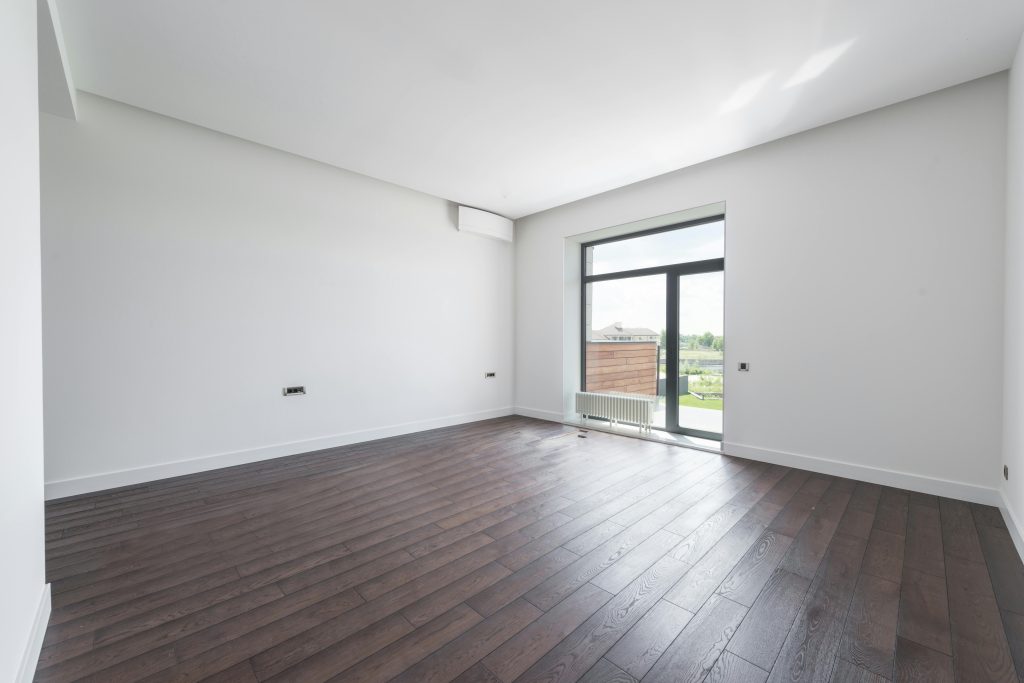If you (or joint home owner) need long-term residential care in the UK, here’s the blunt truth:
Yes, your share of a jointly owned property can be counted towards care home fees—and in some cases, the home can even be sold.
But whether that happens depends on a few key factors:
- The type of joint ownership you have
- Who still lives in the home
- Whether the council places a legal charge or seeks a sale
- If any legal protections apply to your situation
Let’s break this down properly, so you can understand your rights and make smart decisions.
How Care Home Fees Are Assessed in England & Wales
The Financial Assessment (‘Means Test’)
When someone moves into permanent residential care, the local authority will carry out a means test to decide how much they should pay towards their own care.
Here’s how it works:
- If you have over the upper capital limit in assets, you’ll need to pay the full cost of your care.
- If your capital is between the lower and upper limits, you’ll be expected to make a partial contribution.
- If it’s under the lower limit, the local authority covers the cost—but you may still contribute from income.
These limits differ between England and Wales:
- In England: Upper limit £23,250; lower limit £14,250.
- In Wales: Capital limit £50,000 (if below this, the local authority may fund care, but you’ll contribute from income).
For the latest details, check the GOV.UK guidance on social care charging.
What counts as “capital”?
- Savings
- Investments
- Property (including your share of a jointly owned home)
When Your Home Is Included
In most cases, the value of your main residence is included in the means test if you’re moving into care permanently, but there are important exceptions.
Even then, there’s a 12-week property disregard, which gives you a bit of breathing space.
12-week disregard: For the first 12 weeks after moving into care, the council ignores the value of your home if including it would push you above the capital threshold. This gives you time to consider your options without being forced into a rushed sale.
When the Home Is Ignored in the Assessment
Some situations mean your home won’t be counted at all. This is called a mandatory property disregard.
Your home is excluded from the means test if any of the following people still live there:
- Your spouse or civil partner
- A partner you live with as if married
- A close relative aged 60 or over (like a sibling)
- A dependent child under 18
- A disabled or incapacitated relative
- An ex-spouse who’s a single parent of your children
This means you won’t be forced to sell the home while any of these people are still living there. And this applies whether the property is jointly owned or not.
There are also discretionary disregards, for example, if a carer gave up their own home to care for you,and now its their home too, but these are assessed case-by-case.
Key Differences Between England and Wales
While the core rules under the Care Act 2014 apply across England and Wales, there are a few key variations that could affect your situation.
- Capital thresholds: As mentioned, England uses £14,250–£23,250 for partial contributions, while Wales has a single £50,000 limit for residential care funding eligibility.
- Weekly care costs cap: Wales has a maximum weekly charge for non-residential care (around £100 as of 2026), but no such cap for residential care. England doesn’t cap weekly fees but follows the means test strictly.
- Funding availability: Local authorities in both nations handle assessments, but funding pressures can lead to slight differences in how discretionary disregards are applied.
If you’re unsure which rules apply to you, contact your local council or visit Age UK’s care funding advice for tailored guidance.
Joint Ownership – The Legal Basics (England & Wales)
The Two Forms of “Joint” Ownership
Joint tenants (JT)
- You both own the whole property together (no defined shares on the title).
- No shares to gift in a will: on death, the right of survivorship passes the whole property to the other owner.
Tenants in common (TiC)
- You each own a defined beneficial share (often 50/50, but can be unequal).
- Your share can be left to someone else in your will.
- No right of survivorship.
How this article uses terms: When we say “jointly owned”, we mean either JT (Joint Tenants) or TiC (tenants in common). Where the position differs, we say so.
Why does the ownership type matter?
For estate planning: it matters a lot (survivorship for JT vs gifting your share for TiC).
For care-fee means testing: it matters much less. The council is interested in the value of your beneficial interest, not the full house value, and they assess that whether you’re JT or TiC.
- If JT: for valuation purposes, councils typically treat you as having a notional share (often assumed 50% unless evidence shows otherwise).
- If TiC: they’ll use your stated share (e.g., 50%, 25%, etc.).
Either way, they don’t just take the house value and divide by two; they must consider what your portion would realistically fetch on the open market.
How Your Share Is Valued (JT and TiC)
Owning a share isn’t the same as owning a whole house. The council should ask:
“What would your beneficial interest sell for to a willing buyer on the open market, given the real-world hurdles (e.g., another co-owner in occupation who won’t sell)?”
Because most buyers don’t want a part-share where someone else lives (and can’t be made to leave without a court order), your share is often worth far less than a simple 50% slice, and sometimes even “nil” in practice.
Can One Owner Sell the Whole Property Without the Other? (JT and TiC)
No. A sale of the whole requires all co-owners’ agreement, or a court order.
A co-owner can transfer/sell their own beneficial interest, but that doesn’t force a sale from the other owner, which is exactly why the market value of such a share is usually heavily discounted.
If a court is asked to intervene, the route is usually under the Trusts of Land and Appointment of Trustees Act 1996 (TOLATA) to seek an order for sale.
Can the Council Force a Sale of a Jointly Owned Property?
Sometimes, but it’s uncommon and depends on hurdles that apply equally to JT and TiC:
The council would typically only consider pushing for a sale where:
- Your share has realistic, realisable value,
- No mandatory disregards apply (e.g., a spouse/civil partner still occupies), and
- Fees can’t be paid by other means (e.g., income, savings, a legal charge/deferred payment).
How they might proceed (in broad terms):
- Commonly, they’ll just secure the debt against the property with a legal charge first.
- As a last resort, they may seek a TOLATA order for sale.
- If you lack mental capacity, the Court of Protection may be involved to appoint someone to act for you. That’s about decision-making capacity, not a shortcut to sale.
It’s not automatic and not quick, and courts weigh up the interests of all parties.
When the Council Can’t Force a Sale (JT and TiC)
Statutory protections mean the property (or your share) may be disregarded where, for example:
- A spouse or civil partner lives in the home,
- A relative who is aged 60+, disabled, or under 18 lives there,
- A long-term carer lives there and a discretionary disregard applies,
- Or your share has no real market value in the circumstances.
Even without an occupier, councils must weigh time, cost, feasibility, and the likelihood of a court granting an order — which is why forced sales are very rare in practice.
Quick Reference (JT vs TiC for care fees)
| Issue | Joint Tenants (JT) | Tenants in Common (TiC) |
| Defined shares? | No (but a notional share is used for valuation) | Yes (e.g., 50%, 25%) |
| Can leave share by will? | No (survivorship applies) | Yes |
| Right of survivorship? | Yes | No |
| Care-fee assessment basis | Value of your beneficial interest (often treated as a 50% notional share for valuation unless evidence suggests otherwise) | Value of your stated beneficial share |
| Likelihood council can force a sale | Low in practice for both; depends on disregards, value, and court discretion | Low in practice for both; depends on disregards, value, and court discretion |
Charging Orders Instead of a Forced Sale
If the council can’t (or chooses not to) force a sale, they may place a legal charge on your share of the property.
Think of it like a “care fees mortgage”.
This means:
- They don’t force you to sell now
- But they recover the money later – usually after the home is eventually sold, often after your death
This is called a Deferred Payment Agreement. It’s typically used when you’re in residential care and the property is empty (not if someone qualifying for a disregard is still living there). Interest is charged on the deferred amount.
For more on how this works, see MoneyHelper’s guide to Deferred Payment Agreements.
Important: This doesn’t apply to the whole house just to the share owned by the person in care.
It’s a common solution when the council is owed money, but can’t or won’t push for a sale.
So if you’re worried about being forced out of your jointly owned home, or your loved one being pushed to sell, rest assured that legal protections are stronger than many people realise.
Common Scenarios and How They’re Treated
The way a jointly owned home is treated in care fee assessments depends heavily on who the co-owner is, who’s living in the home, and whether legal exemptions apply.
Here’s how it plays out in the most common situations:
Married Couples or Civil Partners
This is the most protected category.
What usually happens:
- If one partner moves into care, but the other remains living in the home, the entire property is disregarded for care fee purposes.
- It doesn’t matter whether the property is owned as joint tenants or tenants in common.
- The disregard lasts for as long as the partner continues to live in the home.
Good to know:
This protection is enshrined in the Care Act 2014—and applies regardless of the value of the home.
So you won’t be forced to sell your jointly owned home if your husband, wife, or civil partner still lives in it.
Siblings or Friends Owning Together
This gets more complex, and riskier.
Let’s say you and your sibling co-own a house 50/50. If one of you moves into care and the other still lives there:
- If the remaining sibling is over 60, the property is usually disregarded.
- If they’re under 60, the local authority might decide whether to apply a discretionary disregard.
- If no disregard applies, your share of the property is assessed, and the council might place a charge on it, or even seek a sale (though that’s rare).
If both of you move into care? The whole property is potentially up for grabs, unless other exemptions apply.
Important tip:
Local authorities are often more willing to grant discretionary disregards if the sibling has lived in the property long-term and given up their own home to support you.
Parent and Adult Child Ownership
Another tricky one, and becoming more common with multi-generational homes.
If a parent and adult child own a house together, and the parent moves into care, then:
- If the adult child is under 60, not disabled, and not financially dependent, the council might count the parent’s share towards care fees.
- However, if the child:
- Is disabled
- Is over 60
- Or can prove they gave up their home to care for their parent…
- …the council may apply a mandatory or discretionary disregard.
Realistic outcome?
- If the adult child still lives in the home and has no other property, the council may assess the parent’s share as having little or no market value—because no one wants to buy half a house with someone else living in it.
- That can mean the parent avoids immediate care fee contributions from the property value.
Each of these scenarios shows why it’s critical to understand the full legal and financial picture before making assumptions or decisions about what might happen to your home.
Gifting or Transferring Your Share to Avoid Care Fees
Trying to “gift” your share of a jointly owned home, or transfer it to a loved one, won’t automatically protect it from being counted in a care fees assessment.
In fact, it might do the opposite.
Here’s why…
The ‘Deliberate Deprivation of Assets’ Rule
Local authorities can investigate whether you intentionally reduced your assets to avoid paying care fees.
This is known as deliberate deprivation of assets.
They’ll ask questions like:
- “Was the timing of the gift suspicious?”
- “Did you know you’d need care when you transferred the asset?”
- “Did you still retain any benefit or control over the property?”
If they think the answer is yes to any of those, they can treat the gift as if it never happened.
This means:
- Your former share of the property still counts as part of your capital
- You’ll be assessed as though you still owned it
- The council may deny funding until that value is used up
Important: There’s no fixed look-back period like there is with inheritance tax. The council can examine transactions going back as far as necessary, based on patterns of behaviour.
For expert advice, read Age UK’s factsheet on deprivation of assets.
Risks of Transferring Your Share
Even if your motives are innocent, transferring your property share can backfire badly.
Here’s why:
1. You Lose Control
Once you’ve signed over your share:
-
- You no longer have legal ownership
- You can’t sell or remortgage without your co-owner’s agreement
- You’re vulnerable if they fall into financial trouble, divorce, or pass away
2. It Doesn’t Guarantee Protection
If the council decides the transfer was deliberate deprivation, the value still gets counted, but now you don’t even own the asset anymore so you can’t sell it!
So you’re stuck:
-
- No funding
- No home
- No recourse
3. It May Cause Disputes
We’ve seen cases where:
-
- The co-owner sells their share or uses it as loan security
- Family members argue over entitlement
- Trustees, creditors or partners get involved
It’s rarely worth the risk without proper advice.
Key takeaway:
If you’re thinking about transferring property to avoid care fees, speak to a solicitor who specialises in this area, ideally before you take any action.
Poorly planned moves can cost far more than they save.
Using a Trust to Protect (or “Ring-Fence”) Half the Home
The big picture
Local authorities assess the person’s own capital, not someone else’s. For property, they look at the person’s beneficial share (their right to sale proceeds), not the whole house. That share is valued at what a willing buyer would pay for it on the open market—which can be much less than a simple 50% split and in some cases even nil, especially where a co-owner won’t sell and someone still occupies the home.
What actually works: a Will Trust (Property Protection / Life-Interest Trust)
If a couple own as tenants in common, each can leave their share in a Will trust (often called a Property Protection Trust or Life-Interest Trust). When the first partner dies, their half goes into the trust. The survivor keeps the right to live there (and usually to move/“port” the trust into a replacement home), but does not own the deceased’s half outright.
Why this helps
- In any later means test of the survivor, the trust half isn’t the survivor’s capital (they don’t beneficially own it). Only the survivor’s own share and other assets are assessed.
- This is not “deprivation of assets” by the survivor—it happens on the first death, not by the person now needing care. (Deprivation looks for a person intentionally reducing their own assets to avoid charges.)
Set-up essentials
- Sever a joint tenancy first so you hold as tenants in common (needed for defined shares).
- Put a life-interest/IPDI clause in each Will giving the survivor a right to occupy and flexibility to sell/buy another home.
- Appoint suitable trustees and record clear replacement-home powers.
(Practically, this is everyday private-client work. Your conveyancer/estate-planning solicitor will handle it.)
The strategy
The trust doesn’t protect the share of the first person going into care, but only the half of the second person’s assets, if the first has already passed away.
How it works:
- Both parties use a trust
- As the first party goes into care the council puts a low value on their share of the property because of the second owner living in the property wont sell or is exempt because it’s the spouse. This affects the means testing favourably for the first person to go into care.
- The first person in care passes away…
- The second owner goes into care
- Now, when the second owner is means tested for care by the council, they still only own half a property and are means tested only on that, making their care contribution liability much lower, since they only own half the property, which can’t easily be sold anywhere close to the market value, because the Trust won’t sell the other half.
If the ship has already sailed with regard to setting up trusts, or if, even with a trust, the means test for the first owner means that they must cough up cash for care, then selling may be the only viable option.
Selling with Co-Owner Cooperation (England & Wales)
When everyone’s on the same page, you’ve got two practical routes. The right one depends on whether you want to keep the property in the family (buy-out) or cash out completely (sell the whole).
Option 1: Co-Owner Buy-Out
Applies to:
- Joint tenants (JT): usually sever first so you become tenants in common (TiC) and can receive a defined share of the proceeds.
- Tenants in common (TiC): you already have a defined share.
Typical steps
- Independent valuation of the beneficial share(s).
- If JT: serve written notice to sever; your solicitor registers a Form A restriction so shares are defined.
- Mortgage check: lender consent may be needed for a transfer of equity or a refinance.
- Agree the price & terms (allow for fees, any arrears, and apportionments).
- Solicitor handles the transfer (TR1), funds move on completion, Land Registry is updated.
Money & tax to flag
- SDLT may be payable by the buying co-owner (including on any mortgage debt they take on).
- CGT may apply to the seller if it’s not their only or main residence.
- Care-fees angle: selling for less than market value risks a deprivation of assets challenge.
Pros
- Fast, private, least disruption to anyone living there.
- Seller can use funds to pay for care
Cons
- Needs funding/borrowing; lender must play ball.
Option 2: Agree to Sell the Whole Property
Applies to: JT and TiC.
Why cooperation matters
- A sale with vacant possession attracts normal buyers and full market value.
- No one needs to litigate under TOLATA (time-saving, cost-saving).
Typical steps
- Agree the ground rules in writing: route, timeline, who pays which fees, and how proceeds will be split.
- Valuation(s) and agent instruction.
- If JT and you want control over split/proceeds: sever first so shares are defined before exchange/completion.
- Mortgage: obtain a redemption statement; check early-repayment charges.
- Conveyancing to exchange → completion; sale proceeds are distributed by the solicitors.
How proceeds are split
- TiC: according to the recorded shares (e.g., 50/50, 70/30).
- JT (not severed): split is presumed equal unless there’s a clear, documented different agreement/beneficial trust. Severing before sale avoids ambiguity.
Pros
- Maximises price; clean exit for everyone.
- Seller can use funds to pay for care
Cons
- Requires moving out/possession; full sales cycle (marketing, viewings, chain risk).
How to Sell the Whole Property Fast
If you need to unlock cash quickly, without the hassle of estate agents or buyer chains, then this is where Property Rescue comes in.
Here’s how it works with us:
- We buy any property fast directly from the owner
- No estate agent fees, solicitor fees, or hidden charges
- Cash paid within days not months
- Discreet process with no for-sale boards
- We can work around sensitive family or legal situations
At Property Rescue, we’ve helped thousands of homeowners across England and Wales unlock the value of their home quickly and fairly, whether they own outright or jointly.
We are a professional house buying company which large cash reserved, ready to buy your home immediately. Unlike estate agents, we don’t need to find you willing a buyer. We are the buyer.
Get a free, no-obligation cash offer today. Or call us directly on 020 8634 0224
We’re here to help—no pressure, no nonsense, just real solutions.









